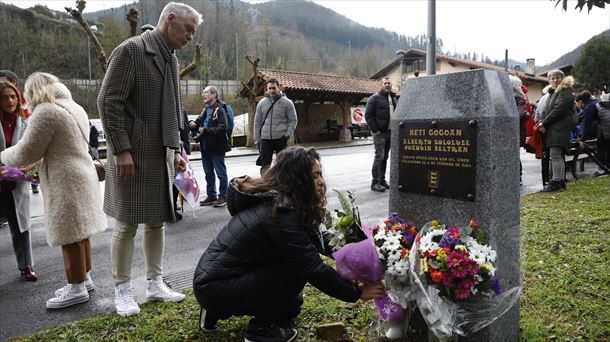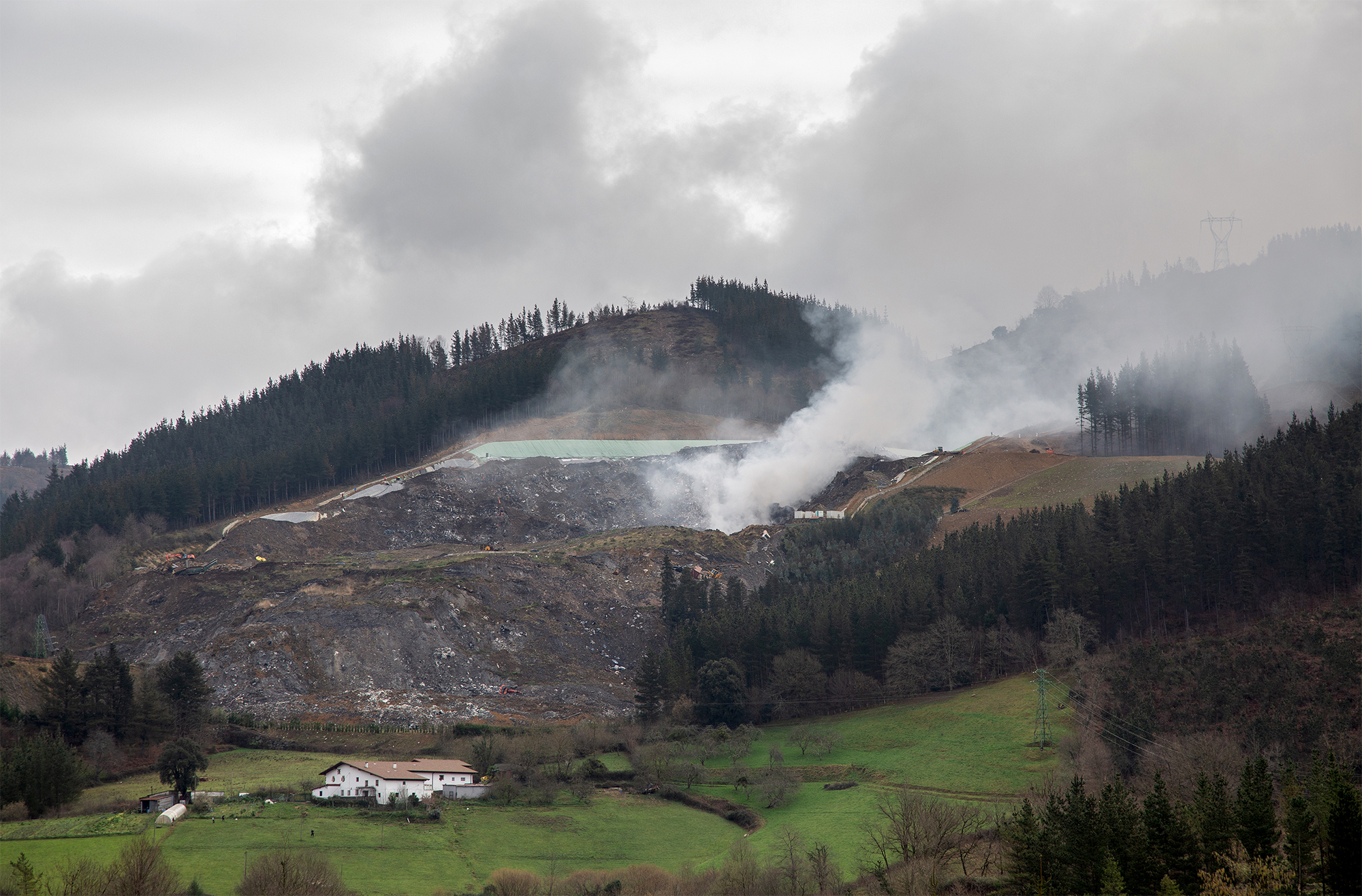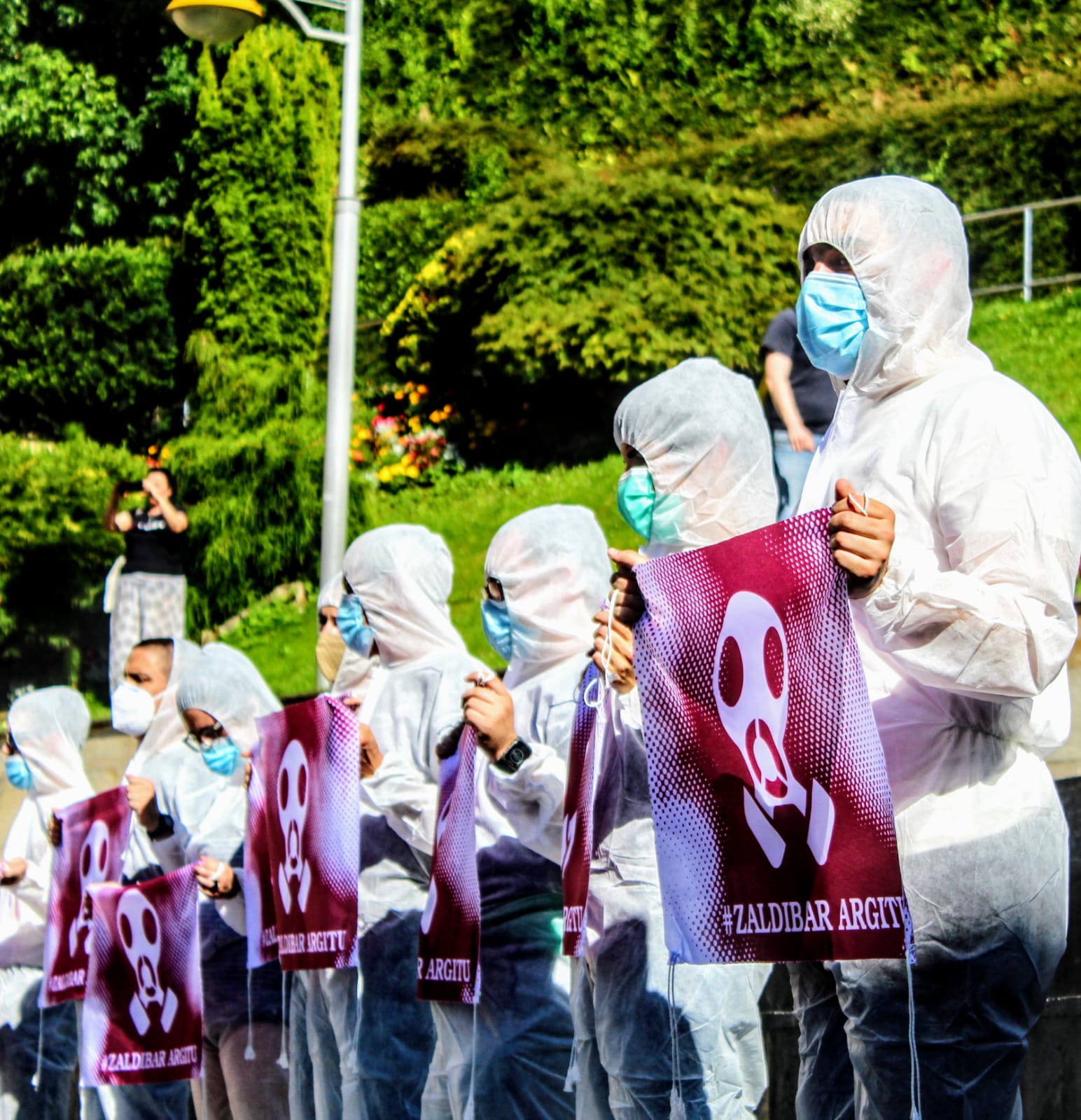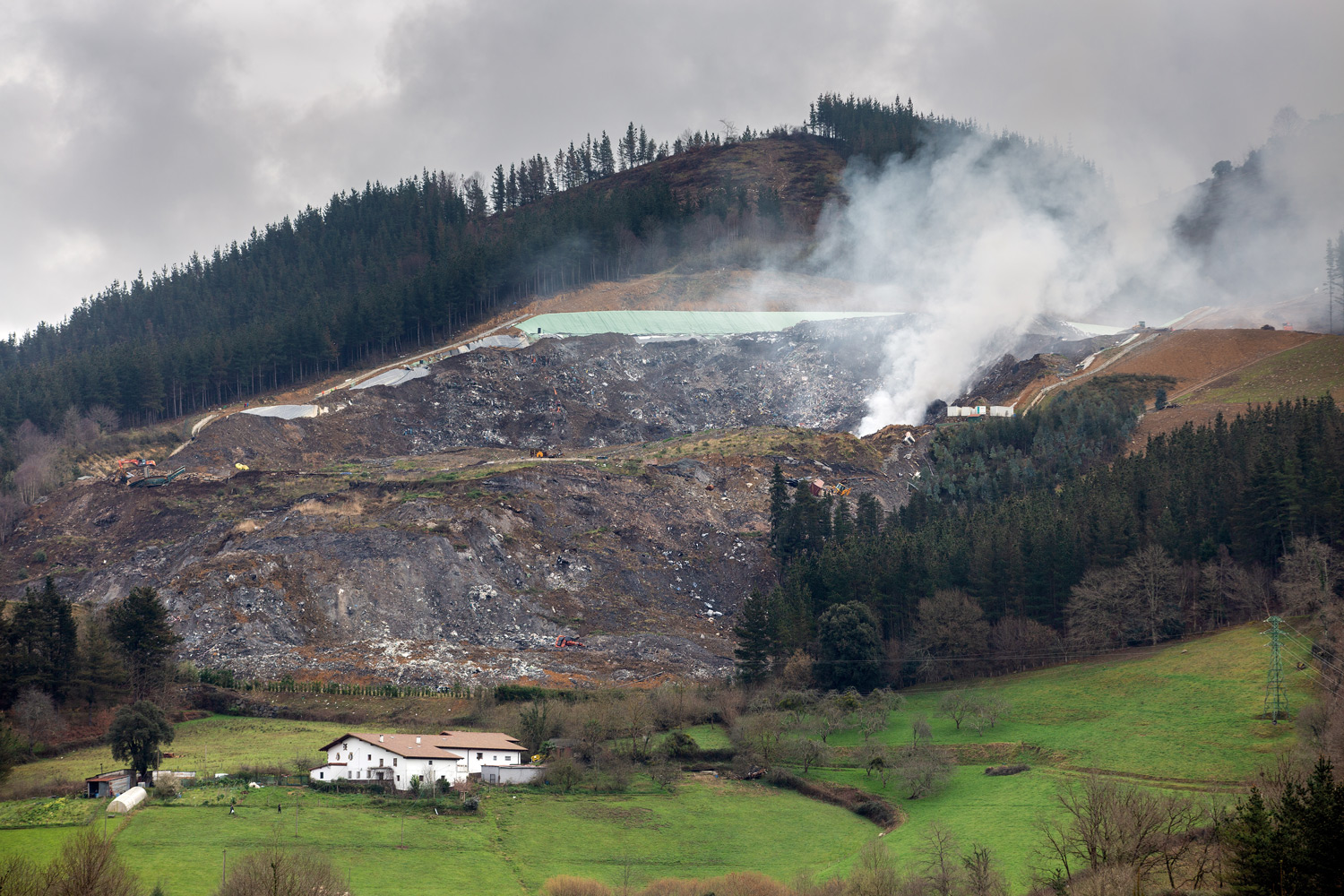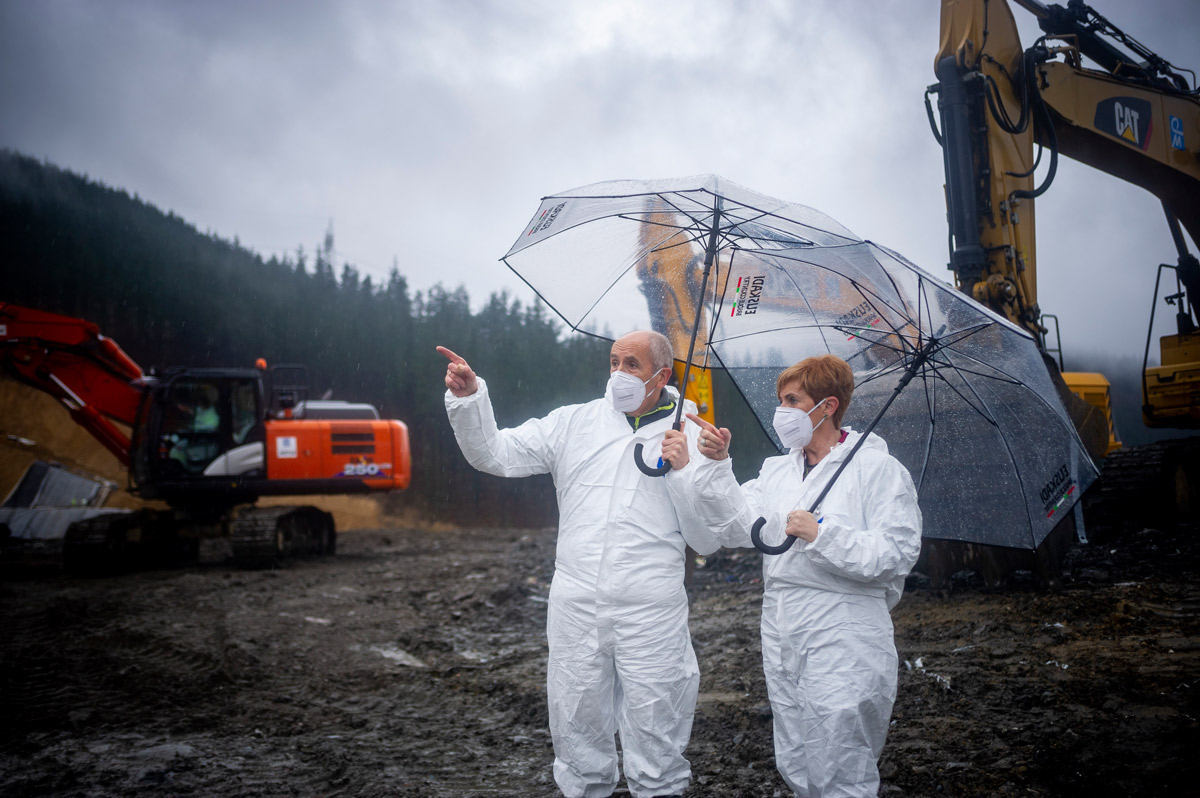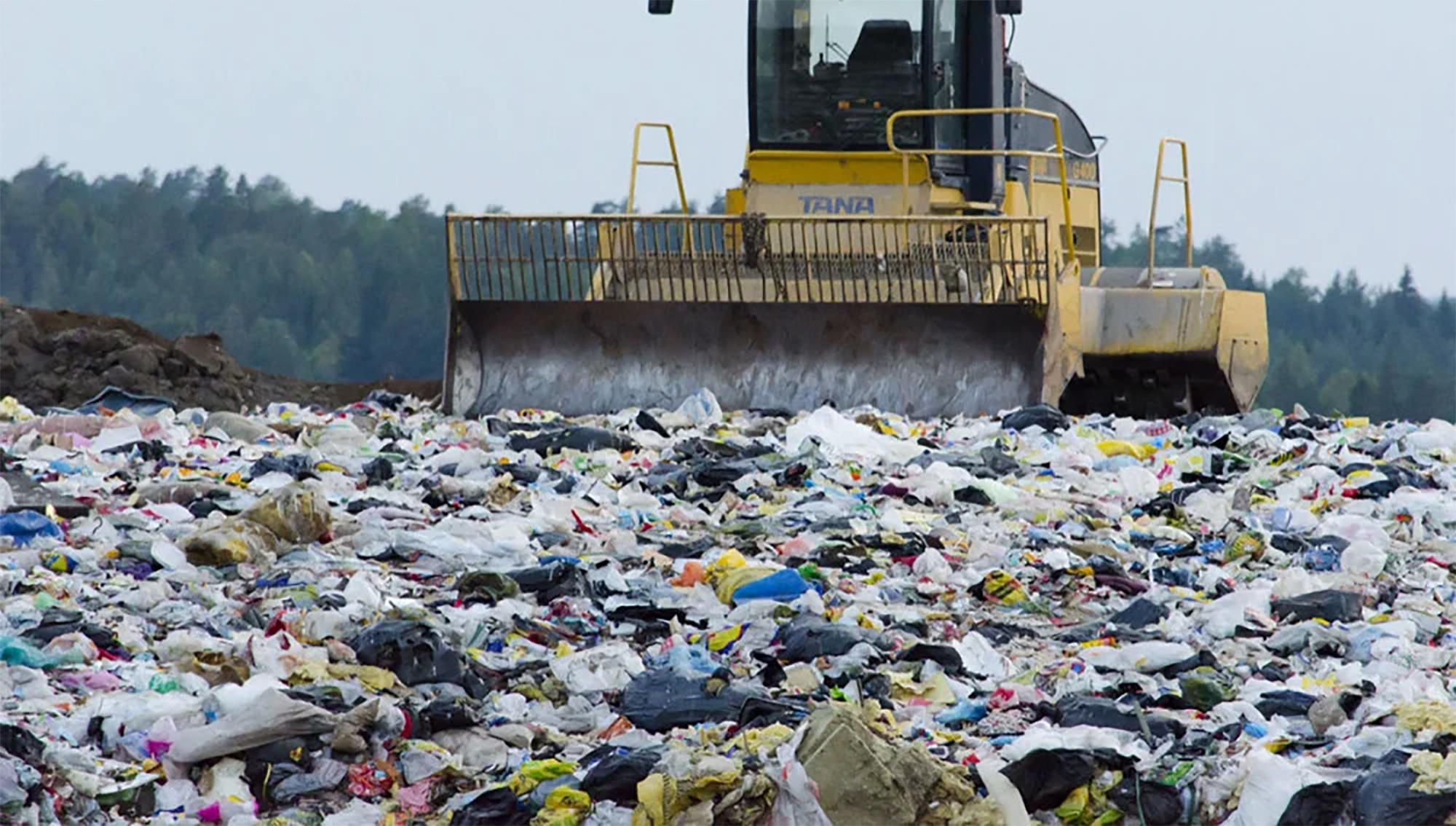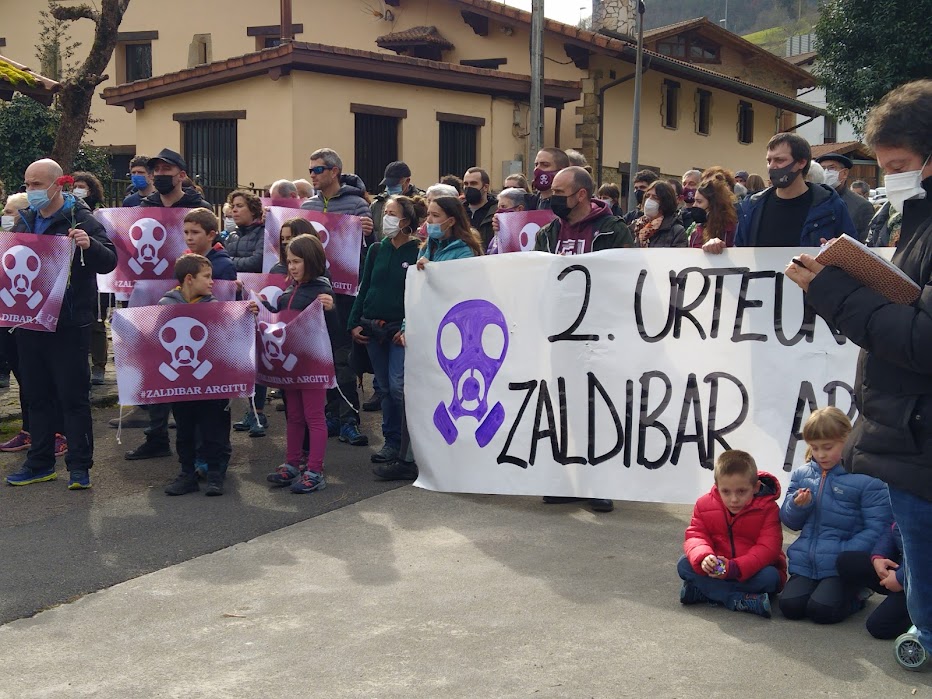"They say it's not alarmist, but the alarm is on the street and it's come out of their lies."
- We have met a few meters from the collapse of the Zaldibar landfill with Janire Lazkano (Elgeta, 1989) and Jokin Bergara (Eibar, 1994). These are the members of the newly created Zaldibar Argitu platform, and from the accident that has struck this region, we have asked them how they see the situation and what they are asking for.

When and how did you create the platform?
J. Lazkano: In villages near the landfill, shortly after the accident, the first boats were independent. Open meetings were convened in the villages and on 10 February demonstrations were organized in Eibar, Ermua and Zaldibar. There we realized that it was important to start coordinating the peoples. We then jointly organised the demonstration on the 15th day and from there we created coordination of all the platforms of the peoples.
Where have you gone from?
J. Bergara: People from Zaldibar, Elgeta, Mallabia, Markina-Xemein, Ermua and Eibar. In addition, there is also movement in Zalla, as Joaquin's family is from there.
We have had the opportunity to see the list of demands of eleven points that you are working people to people – and therefore it is not closed. To begin with, they ask that Alberto Sololuze and Joaquín Beltrán meet as soon as possible, expressing their support for family members and questioning public institutions. Do you have any kind of relationship with your relatives?
J. Bergara: A family member is part of the platform and it is he who makes contact with the families. For our part, we are putting pressure on the institutions to rigorously follow the searches, because we do not know what they are doing. We call for as many resources as possible to be devoted to this.
These relatives, especially those in Beltrán, have been very angry with the Basque Government. How do you see the political leaders?
"For democratic hygiene some resignations are needed here"
J. Bergara: We see that, because of democratic hygiene, resignations, responsibilities are needed here, and instead the government has taken a representative attitude of normalcy. They have been improvising in the wrong way, from the outset they have sought to hide the issue and today the explanations are very fair.
We're facing a crisis 2.0. The communicative battle is being strong.
J. Lazkano: We see them obsessed with social media, which cries heavily on Twitter, but then they're giving answers from there. It is a disgrace.
J. Bergara: The story that the Basque Government has created is that, in order not to be alarmist, they will solve the problem. Anyone who would like to believe it would find a handle in those words. However, in our peoples, regardless of the media, you don't see that dialectic battle, because people have felt pollution in their own bodies. Parents have been concerned about whether children can play quietly in the park, whether pregnant women have to go from town, whether you can do sport with peace of mind... As an example, on the 5 kilometer trail to the swamp there were a lot of people who used to walk, now nobody's going.

J. Lazkano: The issues have been touched upon by the public, it has been very clear. They extol their management, but we have all felt what has happened. And it's not normal at all. They say they're not alarmist, but if that alarm is on the street. And it's come out of their own lies. The data shows that everything is fine and that every week everything has gone against it. There is a lot of mistrust towards these politicians.
You have specific requests relating to the landfill: ask what has happened during these years, why they have not sanctioned irregularities; you want to know precisely what is happening today and ask for the citizen’s participation in the process of deciding what to do with the waste that has fallen.
J. Lazkano: The lack of confidence is so great that they say we don't believe in it. They say that the only toxic waste in the landfill is asbestos, but the testimonies of the transporters cast doubt on it. We call for waste characterisation to be carried out to see what is there and how it should be managed. We want this analysis not only to be carried out by the institutions, but also to be shared with the social and trade union players, and we want citizens to be involved in the solution. However, we have seen that they have already begun to expropriate the land. They do not need environmental plans, and because of this emergency they do not comply with the protocols. They behave as if they had declared a state of emergency, exceeding all laws and by "collective interest," according to their own words. But it's been a month.
J. Bergara: We attach importance to the landfill because very few people knew it existed, even though the truck was still going up and down. This landfill opened without any kind of interrogation and information. They were dumping a lot of substances that could harm the health of the population that we inhabit in the area, and we knew nothing. We call for a citizen process to claim that the decision on public health must be democratic. The lives of 50,000 people are at stake in the game. In addition, the silence of the Government has been added to that of the municipalities of Eibar, Ermua and Zaldibar. All of them are managed by two equal parts. They will be blamed as a particular accusation, but they also have direct responsibility for the way in which it was managed and the lack of control of it.
They call for systematic measurements and for information to be transparent. The Basque Government, on the other hand, says that the data are transparent.
J. Lazkano: If we don't know what's in the landfill, we're worried about health. We do not know what will come out of it, for example, any gas. They also recognize that fires can be repeated, because there is methane and it can become inflamed. They don't convey certainty because they talk about hypotheses. The leachate collection tank at the bottom of the landfill is not supposed to be broken, but they do not say it for sure. If you want to reassure people, you have to prove it. You can't talk about hypotheses and tell people to calm down.
"In our peoples you don't see the dialectic battle, because people have felt pollution in their own bodies."
J. Bergara: We call for this to be done by an independent research agency because the CSIC agency that has analysed dioxins does not have the European approval to do so. Through emoticons they inform us about the air quality, without giving all the accurate data. They say that there are currently no dioxins or furans and that the air quality is good, but they do not say exactly what the results of the tests are. That's scary, because people are not stupid. If they want to gain credibility, they should finance the research of an independent agency, be an agency agreed by social, trade union and institutional actors and from there carry out all the measurements.
When we say an independent agency, it seems difficult for public institutions to fund studies that question their own research. The Anti-Incinerator Movement, for example, has financed the independent pollution measurement of the Zubieta area.
J. Lazkano: There is the question, whether there is an investigation that goes against your data or whether the results are the same. In Elgeta it was reported that air revisions had been carried out, but no one knows when, where, or who took the samples.
J. Bergara: It's curious, they use the science argument to reassure citizens, and when they ask them for science, they're afraid to show all the data or ask another agency to investigate it. That's where the main question arises. Furthermore, when the Basque Government’s technicians have come to the people, they have given very technical explanations, rather than focusing the message on the daily life of the general public, based on the data and the framework of their reports. For example, when they came to Eibar and Ermua, people asked if we're breathing asbestos fibers or how this is going to affect health. The technicians continuously escaped the questions and did not answer them, using dark and baroque technicalities.
Have you raised funding for independent research?
J. Lazkano: You'll have to think about it, but we're starting. Economic resources are limited.
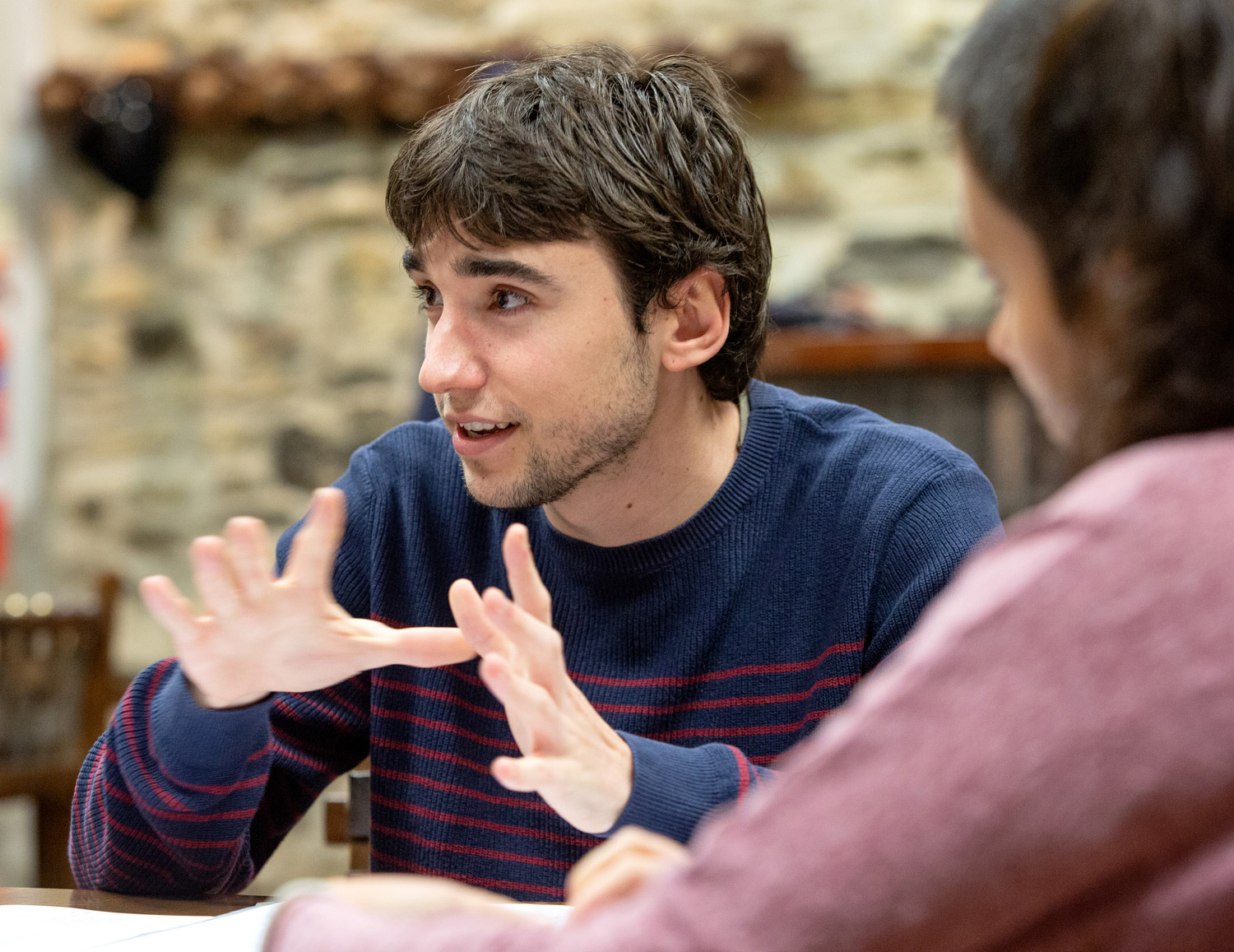
At the stage of responsibilities, they call for the resignation of the Environment Minister, Iñaki Arriola. Why?
J. Bergara: The figure of Arriola has a symbolic burden in this account. He was mayor of Eibar for 15-16 years. Your Environment Advisor is the period in which the most money has been invoiced for the landfill. He is the political leader of the clientele network who has made all this possible. The Basque Government must also assume responsibilities, and we believe that Arriola cannot remain in the public office. If we ask for further resignations, the petition would lose strength and that is why we will focus on it.
“They demand proper, public and rational waste management, a thorough and comprehensive rethinking of the current model.” You will be aware that at the time proposals were put in place to recycle more and that the boycott they suffered was very large. Are you therefore prepared to go into this matter?
"Waste management systems need to be rethought. In many towns of Gipuzkoa it has been proved possible"
J. Lazkano: We, as a platform, are not going to enter into a debate on a particular model, but are going to put on the table that separation rates should be increased. It's also very simple. Waste management systems should be rethought, agreed upon, reduce waste generated, work on reuse and make decisions to recycle waste generated, both by municipalities and citizens. In many localities in Gipuzkoa it has been shown that it is possible, we have not died, we continue with 70% separation rates, and other peoples also have to go to that. Rather than talking about specific systems, we want to talk about the results of the collections. Furthermore, we are being asked to act responsibly, and we are responding that the institutions also have to act responsibly in controls.
J. Bergara: As we are a plural platform, our goal is to reach as broad a consensus as possible and to undertake a thorough rethinking of the current model. We want to open the debate. The rubbish has fallen upon us by this capitalist model. In this sense, we cannot leave the trash in private hands, it cannot be a space to do business. I remember how the PNV once filled Bergara's windows with garbage bags, and now nature has been turned against them. It's a very awkward issue for them, and it does them a lot of damage.
On 12 March a strike was called in Eibar, Ermua, Zaldibar, Elgeta and Mallabia from 12:00 to 15:00 hours. Why?
J. Lazkano: Because it's another way to fight and show anger. We have carried out different activities and believe that it is time to say “it is already”. We have been doing this for a month and not much has been done. We want to contrast our demands with the citizens and carry them out.
J. Bergara: We have seen this happening gradually in the 40th minute of the news, and we have called for this normality to be interrupted, for them to say that nothing has yet been clarified and for the situation to arise. We want to make a further leap in mobilizations. In the morning we will mobilize and in the afternoon we will make a demonstration for the roundabout that unites Eibar-Ermua. We call on all the people who are rethinking waste management in other towns and cities in the Basque Country to organize concentrations. We also have the support of the unions ELA, LAB, CCOO, Steilas and ESK.
Looking forward, are you strong for a long battle?
J. Lazkano: We would like everything to be resolved immediately, but that means that it has been resolved, that workers have been found, that they have taken on responsibilities, that participatory processes have been opened with the citizens... We do not believe that they will be produced in the short term. Once the objectives have been set, we will work to the end to achieve them.
J. Bergara: It seems that they are going to want to extend the account by judicial means for five or six years, so we want to be present in it. Bring together as many actors as possible and involve everyone in this process with a common strategy. In addition, we must think about how to keep the issue alive so that it is not a question of anger. Then comes the election campaign, then the new government... it is a priority to express gravity, and for the future we will agree with the forces of the local platforms. Now, for example, we've pulled out banderoles in the villages by putting them in the windows to see that there's no normality here.
Visiting urban waste collection and reduction sites should be a compulsory school tour. Open a cookie pack to swallow two inner cookies and mentally construct the package surface path. The shame of human activity lies in destiny. Ultimate desolate landscape of the sins of... [+]








